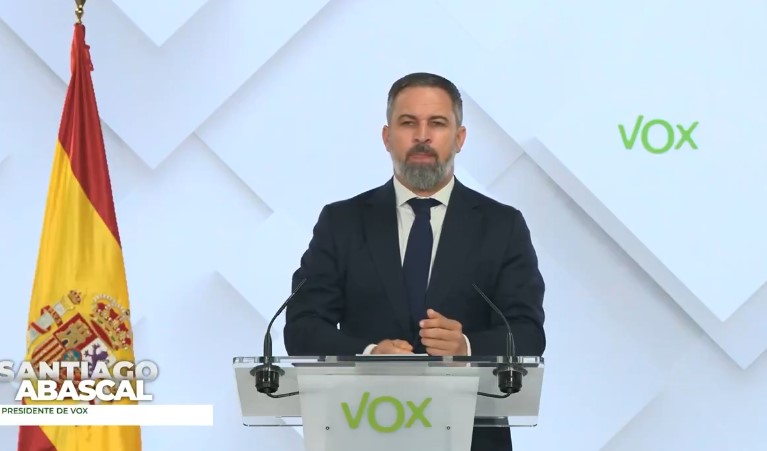Santiago Abascal, the leader of VOX, has called for a no-confidence motion against Prime Minister Pedro Sánchez in light of recent corruption scandals shaking the socialist government and party. This demand puts a spotlight on the current political crisis in Spain and the tensions between the major parties.
The Spanish political landscape is once again gripped by turmoil. Santiago Abascal of VOX, known for his sharp rhetoric, positions himself as an uncompromising critic of the incumbent government. He feels bolstered in his demand for a no-confidence motion by the ongoing allegations of corruption against the Socialist Party (PSOE) and prominent government members.
Abascal emphasized at a press conference that he felt “legitimized to demand that MPs not involved in corruption join VOX to table a no-confidence motion, with the commitment to immediately call new elections.” This statement underlines his desire for a radical change and an immediate reorientation of political power. He even left the door open to supporting a motion, “whoever leads it,” demonstrating his urgency and flexibility on the matter.
The VOX leader did not shy away from using drastic words, calling Sánchez the “capo” of a “mafia” that “robs the Spanish people.” These accusations reflect the deep alienation and distrust that parts of the Spanish population harbor towards the government. Abascal also demanded “a commitment from all political parties that want to end corruption to investigate and get to the bottom of all mafia conspiracies, including an investigation of the companies that supported this clan and are involved in this corruption.” This shows his willingness to force comprehensive clarification and accountability.
PP Rejects Abascal’s Initiative: Strategic Differences in the Face of Crisis
Despite their shared opposition to Sánchez, the conservative People’s Party (PP) rejects Abascal’s call for a no-confidence motion. Miriam Guardiola, spokesperson for the PP in the Murcia region, expressed concerns that “tabling a no-confidence motion destined to fail would give Pedro Sánchez a lifeline.”
The PP spokesperson highlighted that “no-confidence motions are brought to be won, and VOX knows full well that it would not succeed with all their MPs and those of the PP: they should stop playing into Sánchez’s hands with all the corruption surrounding him.” This stance by the PP indicates a strategic divergence, as they apparently fear that an unsuccessful no-confidence motion could politically strengthen Sánchez rather than weaken him.
Santiago Abascal has repeatedly accused the socialists of ruining Spain and has called on the PP to break all agreements with the PSOE. VOX speculates that the PP is hesitant to sit down with them to avoid losing the support of the independence movement – a sensitive observation that illuminates the complex power dynamics within the Spanish opposition. Abascal succinctly summarizes his vision: “The Spanish people deserve a new Spain and a decent Spain.”
The coming weeks will show whether Abascal’s appeal to MPs bears fruit or if the opposition remains divided while the Spanish government grapples with corruption allegations.




